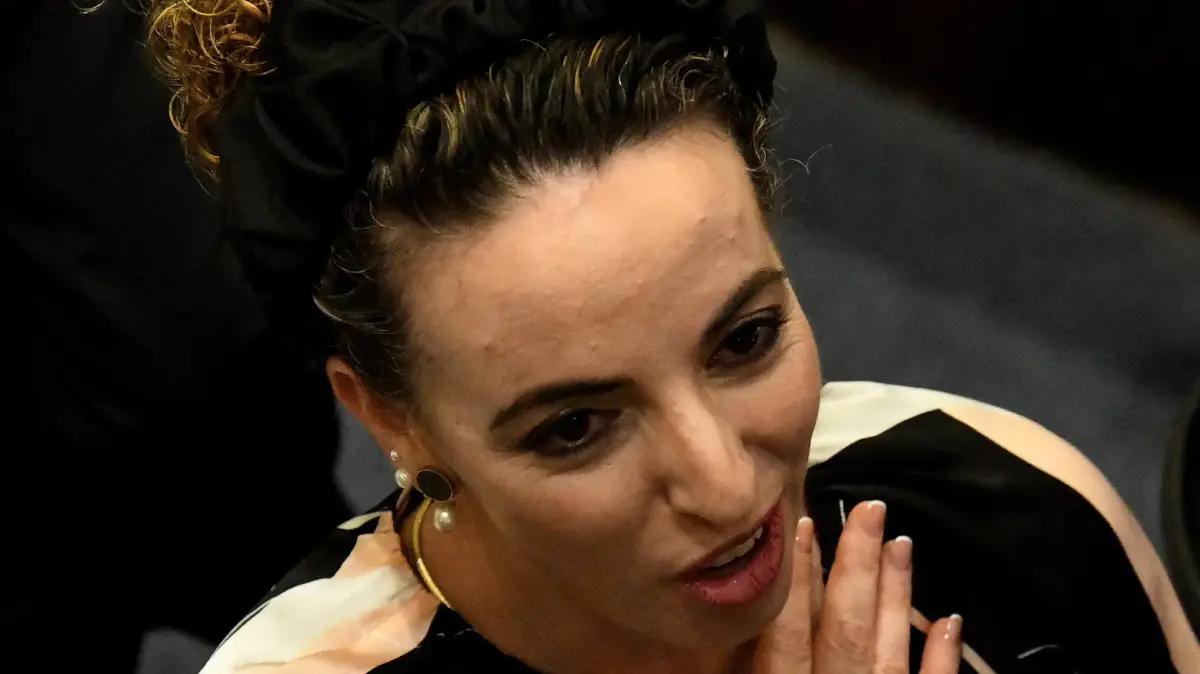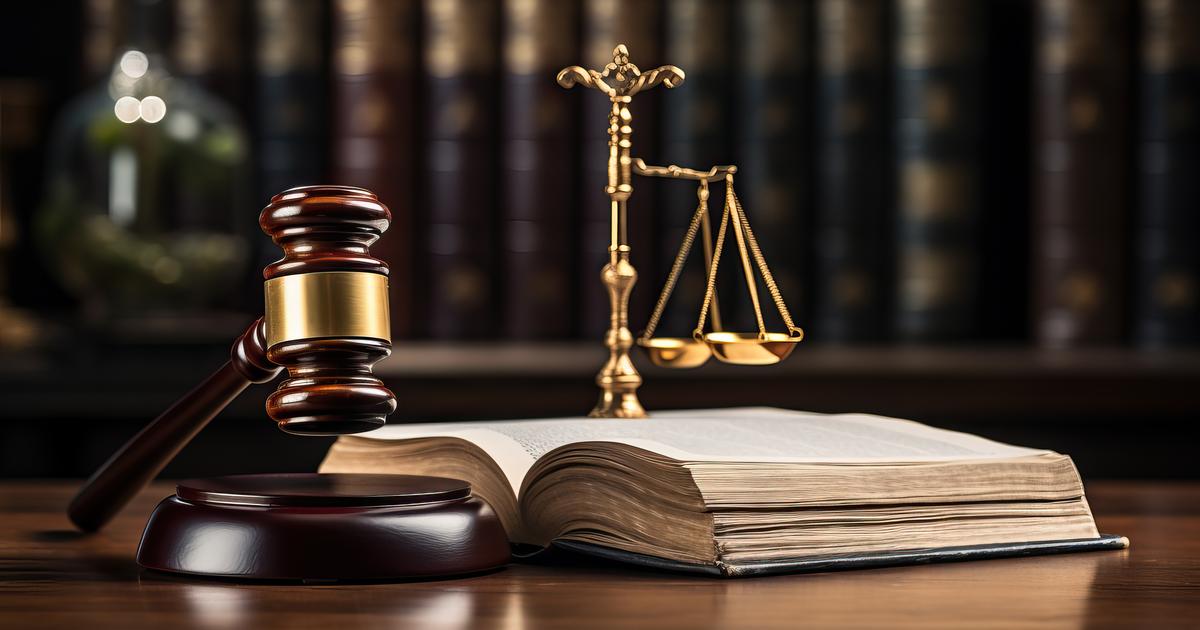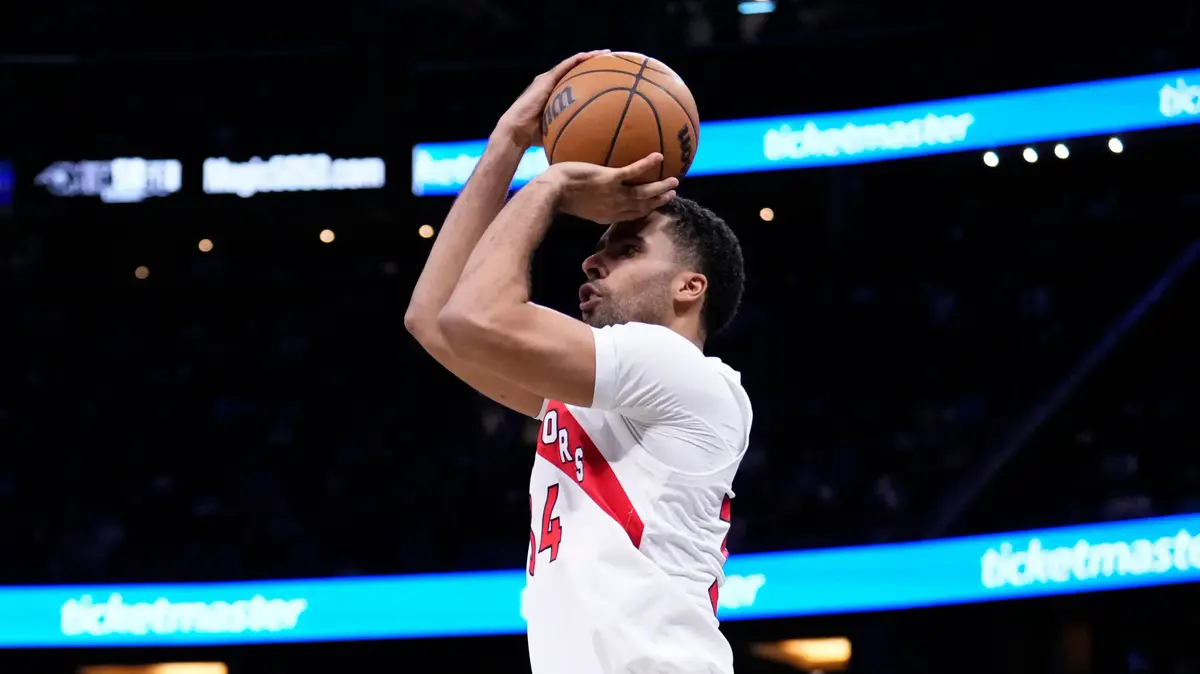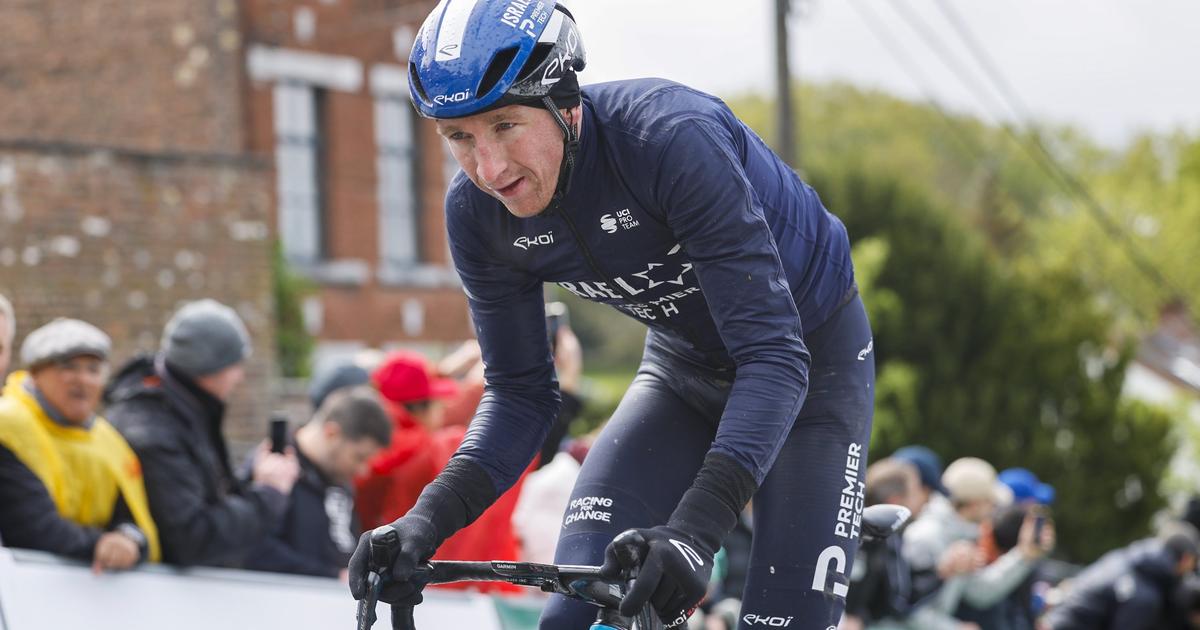Icon: enlarge
Defendant Mark Schmidt (2nd from left) on the first day of the trial
Photo:
PETER KNEFFEL / AFP
It should only be an "opening statement".
This is what defense attorney Peter Helkenberg from Erfurt announced on Wednesday afternoon in hearing room A 101 of the Bavarian Higher Regional Court in Munich.
But what the lawyer of a co-defendant in the doping criminal trial around the Erfurt physician Mark Schmidt had to say on the first day of the hearing made not only the presiding judge Marion Tischler prick up his ears.
Helkenberg represents a contractor from Erfurt who, according to the indictment of the Munich public prosecutor, is said to have helped Schmidt significantly in doping more than 20 athletes from Germany, Austria and other European countries with autologous blood.
Above all, he is said to have transported the materials necessary for the blood adulteration.
To answer his request, Helkenberg sat up, moved over to the table and spoke into the microphone in a calm, clear voice.
Again and again he looked in the direction of the senior public prosecutor Kai Gräber.
The defense attorney had collected a lot of material - and it quickly became clear that this would not be a ten-minute lecture.
In his 53-page statement, Helkenberg attacked the public prosecutor heavily, accusing them of hindering the work of the defense and of using illegal methods to advance their investigations.
The lawyer therefore called for the case against his client to be closed for serious violations of the right to a fair trial.
In essence, the defense attorney accuses the public prosecutor of the following:
Allegedly illegal investigative methods:
In addition to the Munich public prosecutor's office, private investigators were also involved in the "Aderlass operation".
According to Helkenberg, it is unclear how this information was obtained and what was in turn entered into the investigation files.
This must be clarified, however, because: "A sovereign task, as it is the investigation activity, to private, prohibits the state monopoly of force and the rule of law with its current rules."
If this turns out to be true, it could mean the end of the Munich trial.
In mid-2019, doping proceedings against a doctor, an athlete and his father were stopped in Italy after it was discovered that the wiretapping methods used were illegal.
Incomplete files:
Like Schmidt's defense attorney Juri Goldstein, Helkenberg also complains that the files that are made available to the lawyers by the public prosecutor's office have significant gaps.
This violates the principle of fair trial.
For example, e-mails that Public Prosecutor Gräber had sent to alleged witnesses abroad could no longer be found.
The interrogation protocols of a suspect from Innsbruck were also only partially transmitted without a reason.
Correspondence with the National Anti-Doping Agency (Nada) was also missing.
Inadmissible pre-trial detention:
Helkenberg's client has been imprisoned in a Bavarian penal institution since mid-March 2019 due to an alleged risk of escape.
The defense attorney does not understand why: on February 27, 2019, the Thuringian building contractor had already been raided, in which he is said to have been instructed as a suspect.
The arrest took place around three weeks later - not on the run, but at his home.
A complaint against the arrest warrant was later rejected by the Munich Regional Court.
Responsibility of the Munich Public Prosecutor's Office is questionable:
Helkenberg complains that only three of the allegations against Schmidt and his helpers listed in the indictment are even allowed to be heard in a Bavarian court.
More than 95 percent of the alleged blood returns to athletes have taken place abroad.
In addition, many of the points that are held up to the contractor, among other things, did not fall under the criminal liability of the anti-doping law, so Helkenberg.
Doubts at the beginning of the investigation:
Chief Public Prosecutor Gräber always emphasizes that the "Operation Aderlass" was triggered by the broadcast of an ARD documentary on January 17, 2019 about the former Austrian cross-country skier Johannes Dürr.
Helkenberg has serious doubts about this.
Among other things, there is a letter in the files from Nada, which refers to the TV report, but is dated two days before the broadcast date with the note: "In advance by mail".
Another indication: Austrian investigators were already familiar with statements from Dürr in November 2018, which he made to the ARD team and in which he names the doctor Schmidt and his former trainer Gerald Heigl as doping collaborators.
A little later, in December 2018, the decision was made in Austria to monitor Heigl - a good month before the ARD documentary.
Exaggerating the process:
shortly after Schmidt and his helpers were arrested, Chief Public Prosecutor Gräber spoke of the "greatest success in the fight against doping" and that Schmidt's network had operated "worldwide".
An impression that is solidified by the indictment - at least by the part that was read out in court on Wednesday.
However, that was only 37 of the 145 pages in the entire document.
Large parts of the allegations against Schmidt's group that are listed in it are, however, already statute-barred and can therefore no longer be prosecuted.
Attorney Helkenberg believes that "the design of the indictment chosen by the public prosecutor's office is intended to suggest a scope of the proceedings that is only relativized by the part of the indictment that the public either does not know about" or that it is informed in an incorrect manner .
In conclusion, Helkenberg sums up: "The serious public prejudice, the massive forwarding of information to sections of the press, which bluntly admits to being able to rely on the sources of the investigating authorities, simply does not allow a fair trial, because the constant propaganda that resembles a bombing , nullifying any unbiased approach. "
With a fixed expression, the Chief Public Prosecutor Gräber first listened to what his counterpart had to say, played with his pen.
Then he started to take notes.
What he was accused of, he later said in his short reply, in no way called into question the prosecution and his months of investigative work.
"That's why I stopped taking notes at some point," said Gräber.
Accusation of incomplete files
In his view, there was no use of "investigative authorities outside the police force".
The fact that one has exchanged information with investigators is harmless.
He could not see any wrongdoing in this.
He did not go into the detailed allegations.
Even before the start of the trial, DER SPIEGEL had confronted the public prosecutor's office with the allegation of incomplete files.
This is not the case, the authority said in a written reply that the investigation files were complete.
But now the accusation has been raised again that the public prosecutor may not have always worked correctly.
And that for media-effective success in the fight against doping in top-class sport, she attaches greater importance to the process than it possibly deserves.
Icon: The mirror












/cloudfront-eu-central-1.images.arcpublishing.com/prisa/SIL73HWCGXKSZBZRANYT36EZLI.jpg)

/cloudfront-eu-central-1.images.arcpublishing.com/prisa/RBFQGNGZ3QEU4FY4QMSDJQHSQA.jpg)